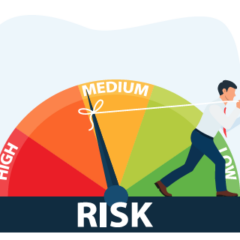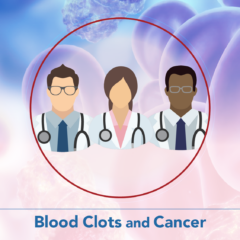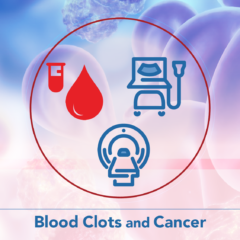Last updated on
Blood Clots and Cancer: What can I do to prevent a blood clot?
Watch these videos to learn more about cancer and thrombosis (blood clots), and what you can do to prevent blood clots.
If you have surgery, you may get medicine to prevent blood clots before and for a few weeks after the surgery. After surgery, you might also wear a type of compression sock on your legs or other areas of your body to help prevent blood clots.
When in the hospital, patients with cancer may receive medicine to help prevent blood clots. Doctors use checklist tools to identify which cancer patients in the hospital have a high risk of blood clots, a low risk of bleeding, and who will benefit from medicine to help prevent blood clots.
New research shows that people with cancer who are not in the hospital may also benefit from medicine to help prevent blood clots. If you have a high risk of blood clots and a low risk of bleeding, your doctor may suggest you take medicine to prevent blood clots. You and your doctor will need to decide together whether the risk of bleeding from the medicine is worth the benefit of preventing a blood clot. (This type of conversation/interaction is called shared decision-making.)
It is also very important to call your doctor right away if you have any symptoms of a (DVT – blood clot in the legs, thighs, or arms), and go to the emergency room if you have shortness of breath or other symptoms of a pulmonary embolism (PE – blood clot in the lungs).



